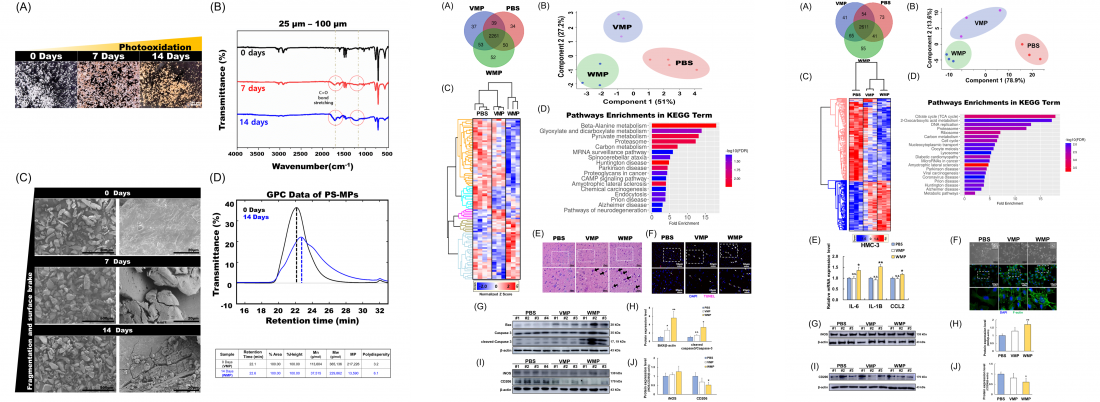□ Director Choi Sungkyun, Head of the Core Protein Resource Center at DGIST (President Kuk Young), and Dr. Jinkyu Park, Professor of Veterinary Medicine at Kyungpook National University (President Hong Wonhwa), have successfully demonstrated the laboratory-level process through which plastic entering the environment transforms into secondary microplastics. Their groundbreaking research reveals that continuous consumption of these secondary microplastics acts as neurotoxins in the brain.
□ With 8 million tons of plastic discarded each year, the impact of UV rays and waves causes it to break down into tiny fragments, transforming into secondary microplastics. These minuscule particles are subsequently ingested by lower life forms, like plankton, and ultimately pose a threat to humans at the top of the food chain.
□ Director Choi and Professor Park conducted a study to determine the harmfulness of secondary microplastics generated through the natural weathering of plastic leaked into the environment. To replicate the process of natural weathering, they artificially created secondary microplastics by subjecting crushed microplastics to seven days of ultraviolet irradiation and physical impact, simulating a natural environment. This laboratory-based generation model closely mimics the chemical and physical changes that take place when plastics are exposed to environmental factors like UV light and waves during leakage into the environment.
□ To assess the detrimental impacts of secondary microplastics, the research team conducted an experiment involving rats, where they orally administered microplastics measuring 100 micrometers or less for a duration of seven days. The findings revealed a significant increase in the expression of inflammatory proteins associated with neurodegeneration and cell death, alongside a decrease in the expression of pro-inflammatory proteins in the external brain tissue of the rats exposed to secondary microplastics.
□ The research team also conducted experiments utilizing a human microglial cell line (HMC-3) to investigate the impact of naturally weathered secondary microplastics on microglia, which play a vital role in regulating inflammatory responses in the brain. The results demonstrated that secondary microplastics triggered inflammatory responses in the brain by stimulating microglia, the regulators of inflammatory processes in this vital organ. This discovery strongly suggests that secondary microplastics have the potential to act as neurotoxic substances in the brain.
□ Director Choi emphasized the significance of their findings, stating, “Through proteomics-based analysis, we have, for the first time, identified that plastic leaked into the environment undergoes an accelerated weathering process, transforming into secondary microplastics that can serve as neurotoxic substances, leading to increased inflammation and cell death in the brain. The implications of microplastics’ harmfulness are particularly alarming, as secondary microplastics exposed in natural environments induce a more severe inflammatory response in the brain.”
□ The study received funding from the DGIST Convergence Research Center's distinctive project and was carried out with Researcher Hee-yeon Kim from DGIST’s Core Protein Resources Center as the first author, and Dr. Choi and Dr. Professor Park as corresponding authors. The research findings were published online in Environmental Research, a prestigious journal in the field of the environment, and were also listed in the Biological Research Information Center (BRIC)’s Hanbitsa (People Who Shine Korea).
Correspondence Author Email Address : [email protected]



